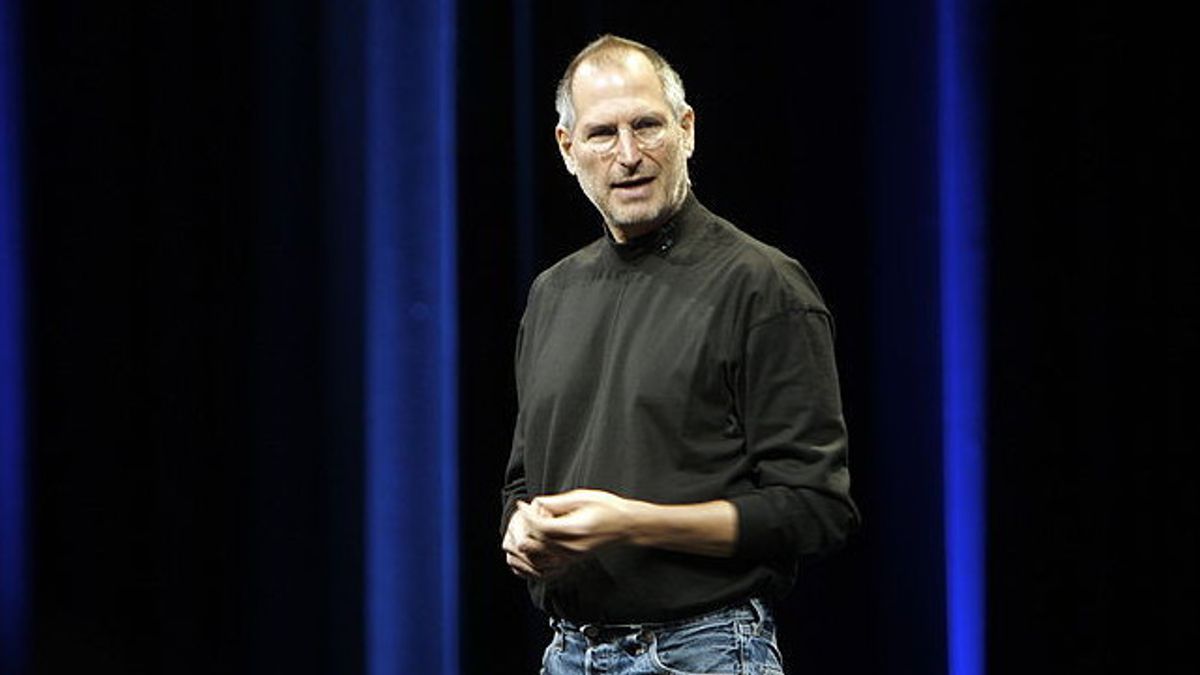JAKARTA - Apple founder Steve Jobs died nine years ago, October 5, 2011. He died after battling pancreatic cancer for nearly a decade. Even though he has left, Jobs's innovations in Apple products are still flowing, "haunting" the company's work to this day.
Early 2009, reports about Jobs's weight loss circulated. People expected Jobs's health problems to return, including regarding liver transplants. Jobs responded to people's concerns by saying he was experiencing a hormonal balance. A few days after stating that, Jobs took six months off.
In an email order to his employees, Jobs said, "the problems related to his health are more complex" than the hormonal balance problems he had mentioned. Jobs also said in the email that "in charge of operating Apple today" was Chief Operating Officer Tim Cook.
After the spotlight on his health problems subsided, Jobs delivered a keynote address at an event held by Apple for special guests, September 9, 2009. Jobs also led several other events throughout 2010, including the launch of the iPad. In January 2011, Jobs announced his return leave for medical purposes. August, Jobs resigned as CEO of Apple and gave full control to Cook.
Even though Jobs is gone, his vision of innovation flows in Apple products until now. One of the main reasons for Apple's continued success is that Jobs created a company similar to himself. He has provided a deep understanding of his business philosophy and technology.
Principles of Jobs

Launching Forbes , Monday, October 5, Jobs' first principle that is still in force today is to create a culture of innovation at Apple. Jobs had an extraordinary intuition of what consumers might want in terms of technology and drove Apple innovation.
No wonder, that we often find new types of products from Apple. Design and specifications are always improving, which makes Apple product users so loyal.
Jobs also helped his leadership team understand the key elements of his thoughts and views. The view is that technology after technology is useless unless it is associated with elegant form, function, and ease of use.
Over the decades speaking with Apple executives and engineers, a culture of innovation and ease of use has guided everything Apple has done in a variety of hardware, software, and even services. It's part of Jobs's legacy and has been a major reason for Apple's continued success, even today.
Since Jobs's death, Tim Cook has advanced Apple's vision and added his own touch and style to Apple's style. But even with Cook's share of Apple's product, management, and direction, Jobs's legacy still plays out in a large part of the way companies manage Cook's direction.
Apple is still a Steve Jobs-driven company, led by many people, most of whom have tutored and mentored Jobs since 1997. Just like other technology companies, Apple is also experiencing the impact of the COVID-19 pandemic.
The COVID-19 crisis is driving major changes in the way people shop for electronics. Several outlets had to be closed due to the pandemic that was getting worse.
This condition resulted in a decrease in the number of sales of Apple products. Despite the decline in sales, Apple still launched a product that many people are waiting for, the iPhone series.
iPhone 12 is planned for release in September 2020. However, the release has been delayed due to COVID-19 and product development. Apple's decision to release products in the midst of circumstances that are not okay shows Steve Jobs consistency that no matter what happens, new innovations must continue to be launched.
The English, Chinese, Japanese, Arabic, and French versions are automatically generated by the AI. So there may still be inaccuracies in translating, please always see Indonesian as our main language. (system supported by DigitalSiber.id)













